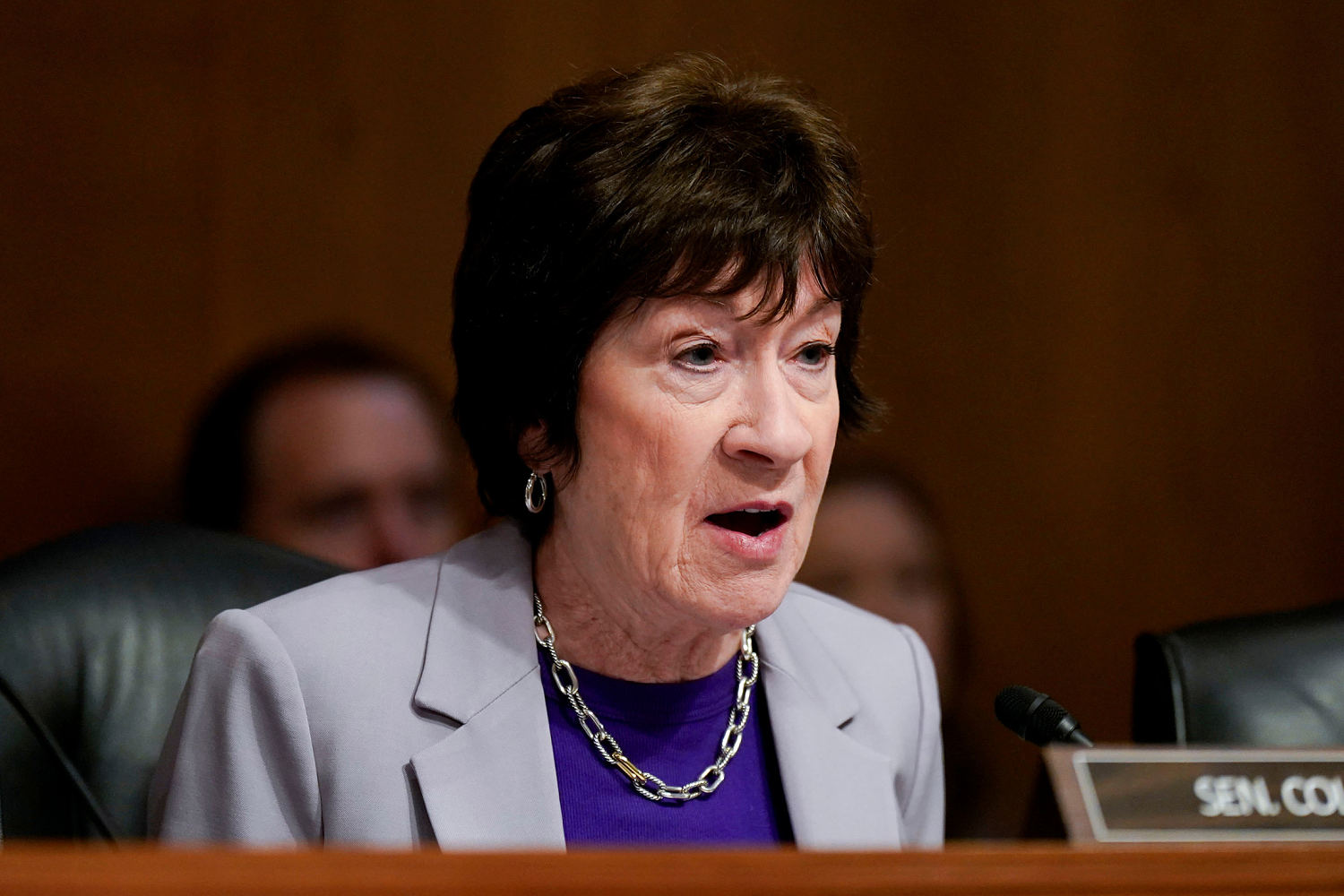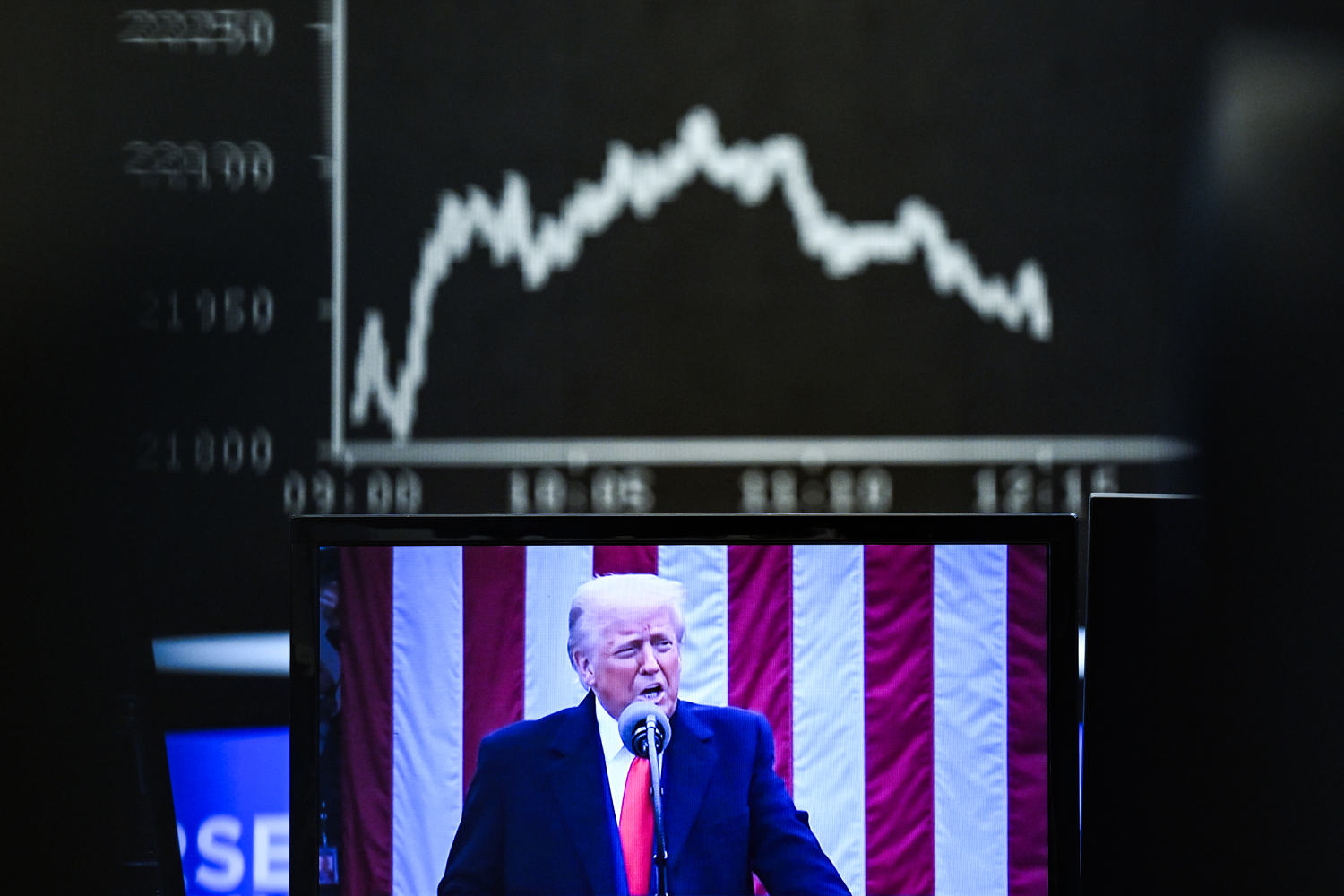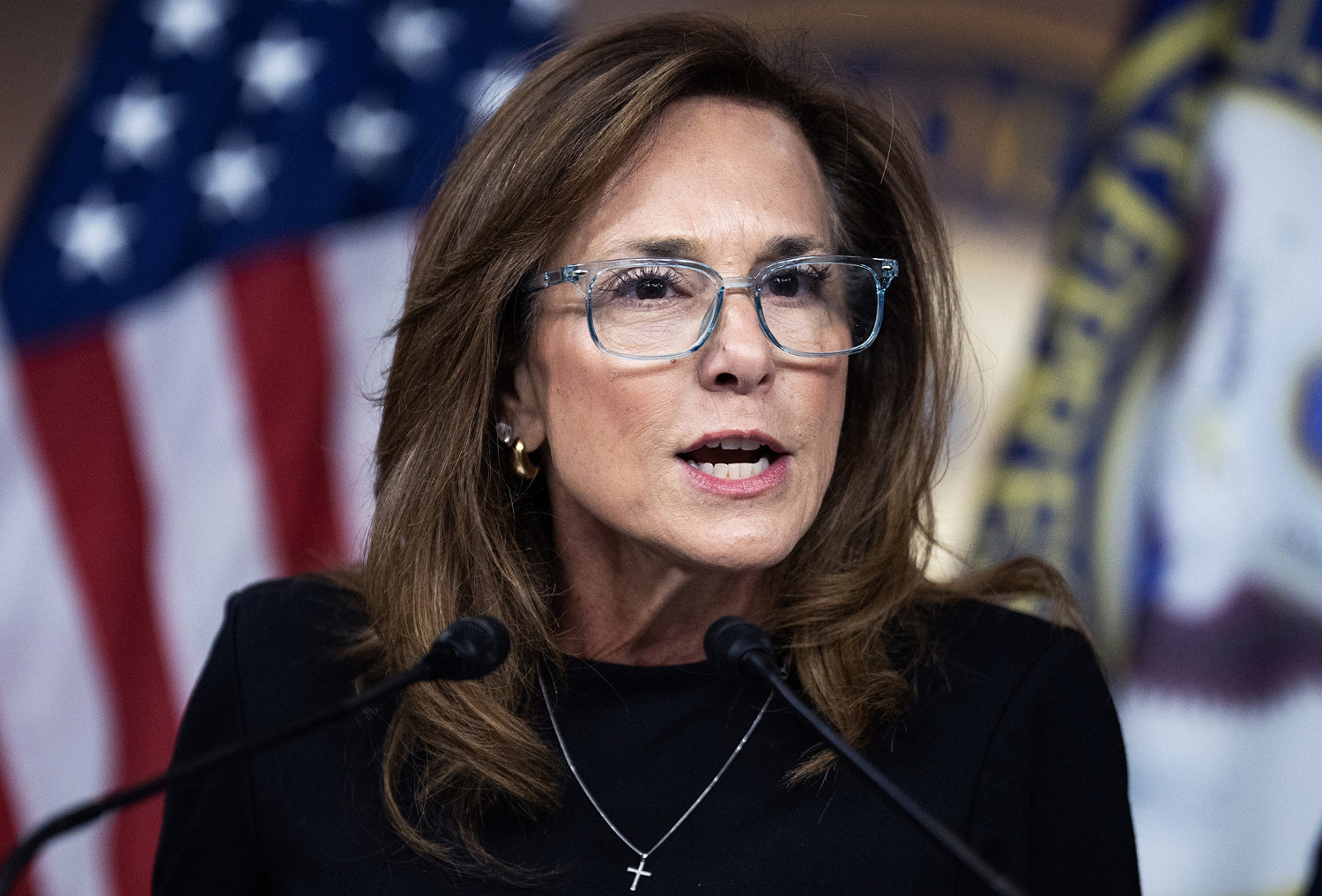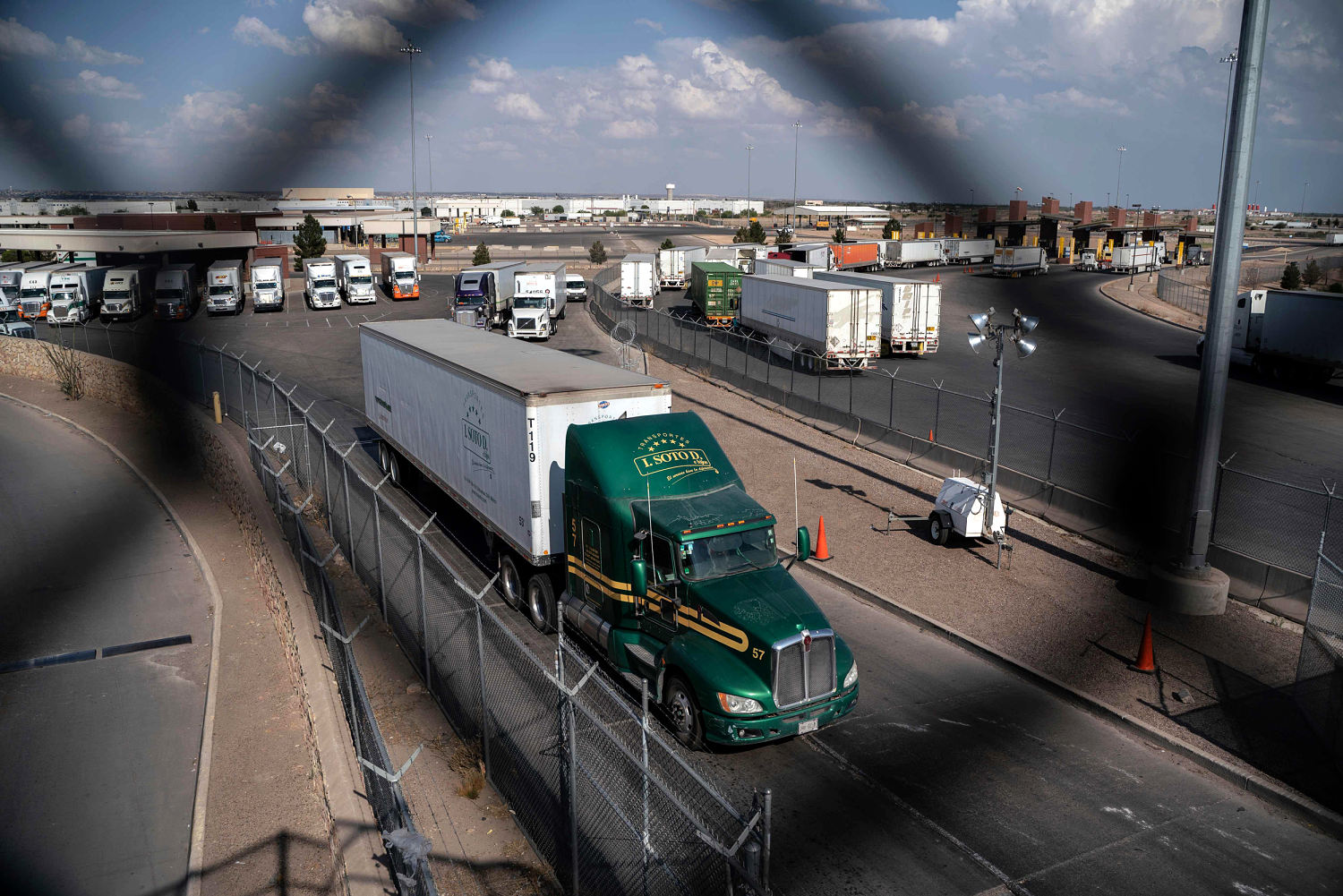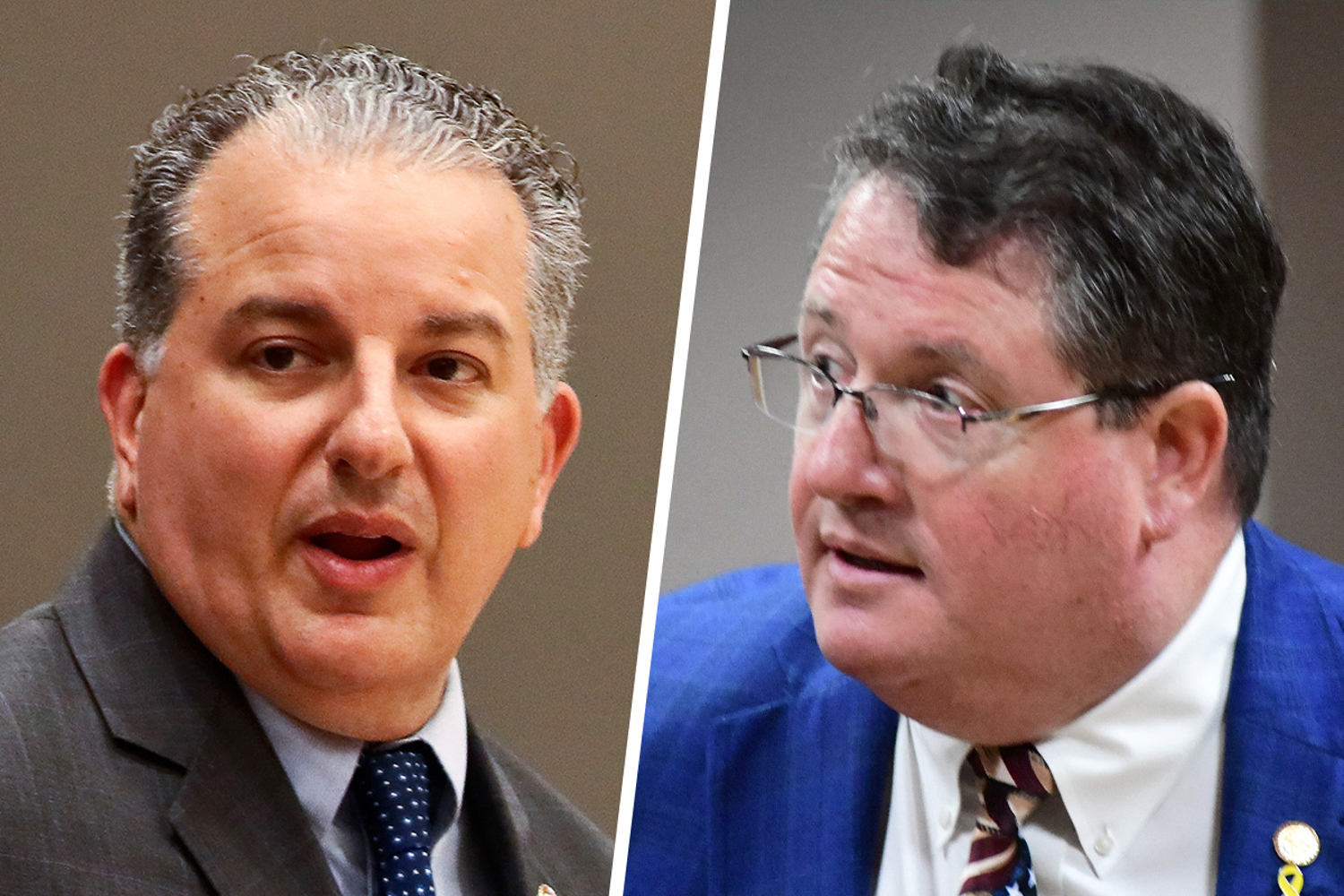Senate Republicans are feeling increasingly uneasy after President Trump rolled out his “Liberation Day” batch of tariffs, which are threatening to further dent the U.S.'s economic standing after weeks of questions over what new levies would be included.
Trump on Wednesday unveiled steep reciprocal tariffs against numerous nations, including allies and adversaries alike, that were larger than expected, setting off a sharp downturn on Wall Street in the futures market that could portend further trouble on Thursday.
While Republicans still want to give Trump room to operate and are alright with some of the reciprocal tariffs, they are worried about what this could mean down the road and whether there will be enough patience on this topic.
“I understand his objective. I share it,” said Sen. John Kennedy (R-La.). “We buy a lot of stuff, and every business in every country in the world wants to sell us stuff, and what President Trump is saying to them is: Swell. If you want to sell us stuff, then move your business to America and sell the stuff here, but at the same time, hire American workers.”
“In the long run, I think it will work. But … in the long run, we’re all dead. The short-run matters too,” he continued. “I don’t care what the experts say. We do not know yet the impact of these [tariffs]. … We just don’t know, and anybody who tells you otherwise that says they know has been smoking the devil’s lettuce.”
Trump rolled out a baseline 10 percent tariff that will go into effect on Friday, with roughly 60 countries facing a higher reciprocal tariff that will go into effect in nearly a week. A separate 25 percent tariff on all foreign-made automobiles will also go into effect overnight on Wednesday.
“This is one of the most important days, in my opinion, in America’s history,” Trump said. “It’s our declaration of economic independence.”
A number of Senate Republicans declined to comment specifically on the tariffs as they dropped within two hours of a Wednesday evening vote. Sen. Shelley Moore Capito (R-W.Va.), for example, noted that she did not have time to “digest” the tariffs in full yet.
Wall Street's initial reaction did nothing to dissuade trouble. As of Wednesday night, Dow Jones Industrial Average futures dropped 800 points, while the Nasdaq and S&P 500 dipped nearly three and four percent, respectively.
But early indications are that they will have to swallow hard in the coming days as much of the Senate GOP conference remains pro-free trade.
Among those is Senate Majority Leader John Thune (R-S.D.), who has readily noted that he is in a “different place” than the president on the subject. The GOP leader told reporters following the announcement that he continues to have his “issues” on the tariff front given the potential agricultural impact that could hit his home state, but still wants to give Trump space to operate to strike deals with nations.
“I do appreciate the president’s focus on making sure that we’re getting better deals and giving businesses an incentive to do business here in the United States and create jobs here. … I think time will tell,” Thune said. “We’ll see, as these get applied, what kind of results we get from that, how long it takes and perhaps … these will be temporary based on how other countries respond.”
According to one Senate Republican, the mood of the GOP conference on the topic was anything but over-joyous heading into Wednesday’s big announcement.
Like Thune, many represent states that are heavy on the agricultural side and are on the front lines of any economic impact of a trade ...



